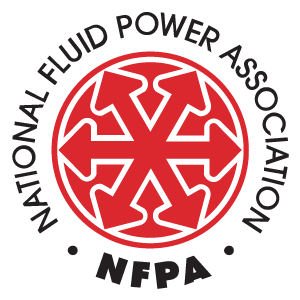As part of an effort to bring more information about the regulatory and legal environment facing American manufacturers, NFPA is monitoring the newsfeed of the National Association of Manufacturers (NAM) and will be bringing important updates like this to the attention of NFPA members.
A bill introduced late last week (Aug 14) that would ban certain shipments from being imported to the U.S. through the de minimis entry would harm manufacturers in the U.S. and clog supply chains, according to the NAM.
What’s going on: The bill would make certain goods, such as imports subject to 301 tariffs, ineligible for entry into the U.S. under de minimis.
- De minimis allows goods valued at less than $800 to enter the U.S. tax-free and with minimal delay.
- While Customs and Border Protection has the resources to assess and collect duties on high-value formal entries subject to 301 tariffs, making such determinations on more than 1 billion shipments valued under $800 would be impossible with the CBP’s current staffing levels.
- The CBP would likely need to hire tens of thousands of additional agents, import specialists, inspectors and lawyers to implement the bill.
Unintended consequences: Every minute the CBP spends focusing on classifying low-value shipments to collect a minimal duty is a minute that they are not inspecting packages that may pose a high risk.
- Focusing on tariff collection will also create a backlog in package processing, aggravating the U.S.’s highest volume air and seaports and diverting border resources.
- Further, a recent economic study details how degrading de minimis would reduce aggregate welfare by up to $14 billion, resulting in a regressive tax that would target the poorest zip codes in America.
What should be done: De minimis “benefit[s] thousands of American small businesses across all sectors,” the NAM and five allied groups said earlier this year. The Biden administration and the administration that follows it should look for “practical … ways to improve de minimis” that do not punish manufacturers or consumers, they advised.
- For example, the CBP should enforce existing U.S. trade laws at the border by separating compliant and illicit packages.
- The agency “should identify ways to use publicly available information and emerging technology … to validate data received across cargo environments, including de minimis,” the groups said.
Recent Posts
Member Highlights the Value of NFPA’s Conferences
At NFPA, our members’ experiences are the foundation of what we do. We’re excited to share our latest testimonial video featuring Ken Baker, CEO of Bailey International, who underscores the value of attending NFPA events. In his video, Ken highlights how the Economic & Industry Outlook Conference provides invaluable insights for his business. From the…
NAM Regulatory Update: House Passes Critical Minerals Bill
As part of an effort to bring more information about the regulatory and legal environment facing American manufacturers, NFPA is monitoring the newsfeed of the National Association of Manufacturers (NAM) and will be bringing important updates like this to the attention of NFPA members. (November 15, 2024) The House easily passed an NAM-backed bill intended…
Fall 2024 Economic Update Webinar – Recording Available
The most recent NFPA Economic Update Webinar featured Lauren Saidel-Baker of ITR Economics. Learn what to expect from a number of our industry’s most popular customer markets, while also getting the answers you need to the short-term outlook for the fluid power industry. These insights and more are available to NFPA members in the archived recording of the…



